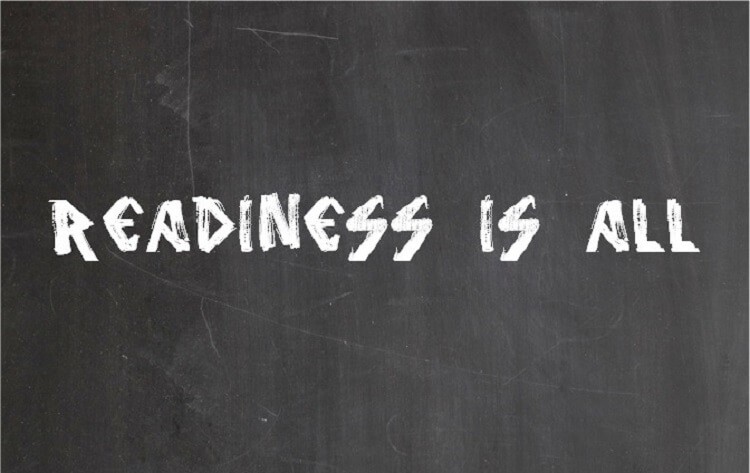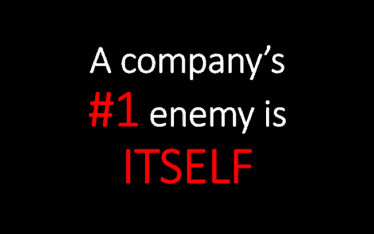Is change readiness is the new change management
Why can some companies take advantage of any change the market brings, while others struggle with the even the smallest internal or market-necessitated modification? The reasons why will differ for each organization, but the question is definitely worth asking – especially in light of the fact that the pace of change is accelerating at the fastest rate in recorded history.
Companies most likely to be successful in making change work to their advantage are the ones that no longer view change as a discrete event to be managed, but as a constant opportunity to evolve the business. So is change readiness is the new change management? Change readiness is the ability to continuously initiate and respond to change in ways that create advantage, minimize risk, and sustain performance.

Change management infographics – From basic change management questions, resistance and the most common change management mistakes
Building organizational readiness to change
Sustaining success depends on an organization’s ability to adapt to a changing environment – whether it’s an external change, such as a transformative technology or a changing economy, or an internal one, such as a restructuring or key process overhaul. Unfortunately, 60-70% of organizational transformations fail – a dismal statistic validated by study after study. Failure rates this high demand a new mindset and new actions:
Change readiness – Change awareness
Change Awareness is a company’s ability to redefine itself as necessary. This contextual focus is critical to innovation – the right product at the right time. Good change awareness practices include scanning the environment for opportunities, focusing on emerging trends and planning for the future. Does your company have people responsible for regularly assessing the market for new opportunities and market changes? Does your company proactively search for opportunities for brand renewal and product innovation?
Change readiness – Change agility
Change agility represents your company’s ability to engage people in pending changes. This is an internal focus that is critical to the company’s ability to effectively implement identified innovations. A great idea won’t matter if you can’t muster the capacity and commitment to carry it through. An organization with good change agility has the capacity to stretch when necessary and quickly shift resources to the place they will make the most difference.
Leadership should inspire confidence and trust, and consistently. How agile is your company? How effective are your managers at engaging and delivering the changes envisioned by your decision makers? How well does your company actually facilitate and execute on change when it is needed?
Change readiness – Change reaction
Change reaction is the ability to appropriately analyze problems, assess risks, and manage the reactions of employees. This internal focus ensures your company can sustain the day-to-day business while reacting in a timely and appropriate manner to self-initiated and market-dictated change. How effectively do you and other leaders at your company assess risk and manage unplanned change? How well does your organization react and respond to crisis?
Change readiness – Change mechanisms
Change Mechanisms should encourage clear goal alignment across functions, the ability to integrate a change into existing systems, accountability for results, and reward systems that reinforce desired change behaviors. This contextual focus is critical to the ability to implement desired change with no interruption to daily operation. Are your structures and systems flexible enough to adapt and support the implementation of change? Does your organization have the structures and systems in place to support the successful implementation of change?
Is change readiness is the new change management?
Short URL & title:
Change readiness the new change management — https://www.torbenrick.eu/t/r/slh
Share it:
If you enjoyed this article, please take 5 seconds to share it on your social network. Thanks!








Whilst I agree 100% with all of the above, i have found regularly that companies are not yet evolved quite enough to appreciate that it is a BAU activity they should work towards. Change readiness is not always seen as that continuous model, more are we ready for this change here and now…. usually i might add too late to be 100% effective. However all that said at what point is it that one should be asking what is the change appetite, and this leads me to also ask what is the emotional maturity and change capacity of the organisation, way before we can effect any change the mechinism as you say has to be in place but this and based on all of the above, also fundamentally is change part of the company strategy,
Rick,
As always (from what I’ve seen of your blog posts), great post … got me thinking. I was mentored by the late, great Kathie Dannemiller. Kathie didn’t believe in change readiness … she thought you either involved people or you didn’t. If one is excluded in the decision-making process, “readying” that person is like trying to push water up a stream.
Luckily, I’ve seen the great work of Nerina Jimmieson from Australia in the last few years. One of our change colleagues, Jennifer Frahm, has a wonderful post relating to your on change readiness where she describes Jimmieson’s latest research findings: http://conversationsofchange.com.au/2013/01/20/ready-or-not/
From my perspective, Rick, I’ll tell you that it is a bit troubling that the terminology is unclear. In the journal articles since 2010, I’ve seen “reactions to change,” “readiness for change,” “responses to change,” and a few more. They are all focused on the individual level, which has lacked attention from a research perspective.
I give you a lot of credit for attempting to sort out the confusion. Your taxonomy of change readiness is a great cause for pause and reflection.
Question: Do you think “change readiness” is a function of change awareness, change agility, change reactions and change mechanisms? I don’t mean to put you on the spot. I’m just curious about your point of view.
Thanks and take care,
Ron
We work mainly with health professionals. I agree with Tracy that change readiness may not be considered as a continuous model, if at all. Change readiness is akin to primary prevention in healthcare. Usually we hear from people after the horse as bolted, when they are actually dealing with resistance to change. For publicly funded health bureaucracies where there is still a predominance of hierarchical rather than collaborative decision making around change, it may be difficult for the change fatigued to have any appetite for more change or to be change ready at all times.